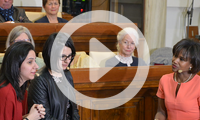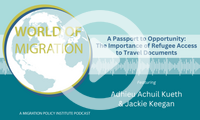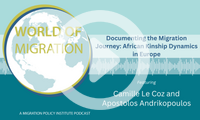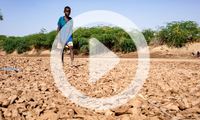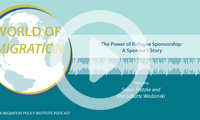Multimedia
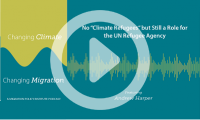
Technically, people forced to move because of climate disasters are not considered “refugees.” But the UN High Commissioner for Refugees still takes climate issues into account, and since 2020 Andrew Harper has been its special advisor on climate action.
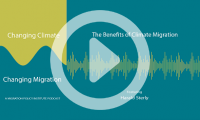
Popular discussions usually frame climate change-induced migration negatively, often as a strategy of last resort. But migrating abroad can also be an effective way to build resilience against the impacts of climate change.
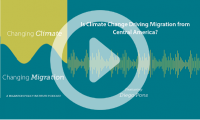
Hundreds of thousands of migrants have left Central America in recent years, and climate extremes have been identified as one of the factors that might be driving this movement, along with elements such as political instability and violence.
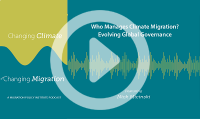
Climate change and international migration both are global issues with aspects that countries try to manage through treaties, pacts, and other types of agreements. But most of the global governance frameworks that exist for climate-induced migration require only voluntary commitments by states.
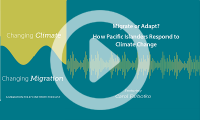
Among the earliest examples of the disruptions that climate change can bring, some low-lying island countries in the Pacific Ocean are facing serious threats from rising sea levels and coastal erosion. Over the long term, atoll nations such as Kiribati, Tuvalu, and the Marshall Islands might eventually need to relocate some or all of their populations.
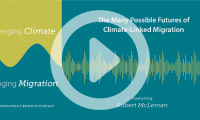
Climate change is already affecting how, whether, and where people migrate. But environmental change is likely to become more extreme, unless the world takes serious action now. How might changes made now impact what future migration looks like?
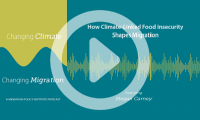
Reliable access to food—or lack thereof—can affect an individual’s decision to migrate. Climate change has the ability to exacerbate food insecurity, especially for farmers and others who live off the land, which can have repercussions for human mobility.
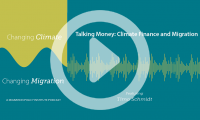
Billions of dollars are being spent on projects to help communities mitigate and adapt to the impacts of climate change, including those at risk of being displaced by environmental events.



